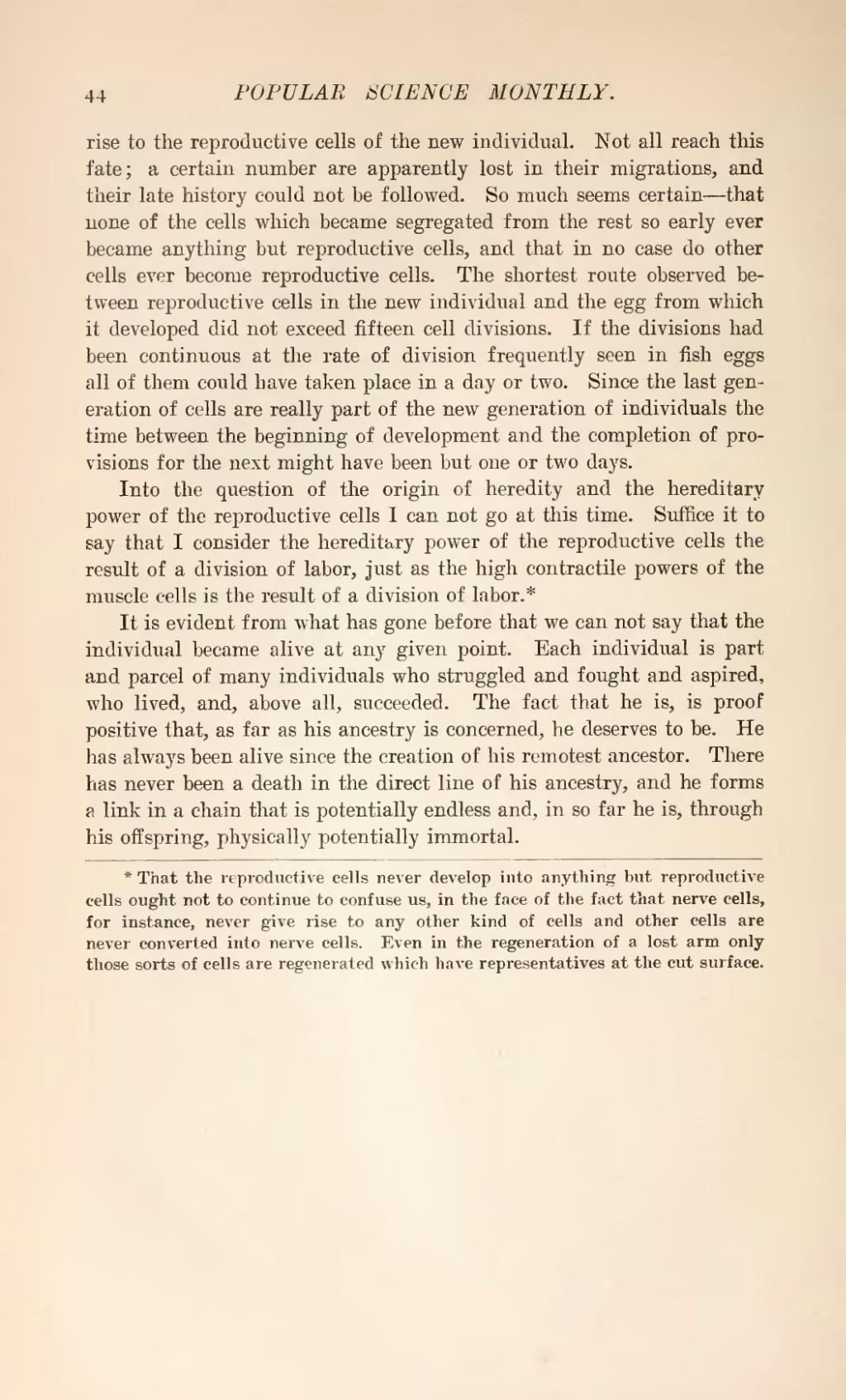rise to the reproductive cells of the new individual. Not all reach this fate; a certain number are apparently lost in their migrations, and their late history could not be followed. So much seems certain—that none of the cells which became segregated from the rest so early ever became anything but reproductive cells, and that in no case do other cells ever become reproductive cells. The shortest route observed between reproductive cells in the new individual and the egg from which it developed did not exceed fifteen cell divisions. If the divisions had been continuous at the rate of division frequently seen in fish eggs all of them could have taken place in a day or two. Since the last generation of cells are really part of the new generation of individuals the time between the beginning of development and the completion of provisions for the next might have been but one or two days.
Into the question of the origin of heredity and the hereditary power of the reproductive cells I can not go at this time. Suffice it to say that I consider the hereditary power of the reproductive cells the result of a division of labor, just as the high contractile powers of the muscle cells is the result of a division of labor.[1]
It is evident from what has gone before that we can not say that the individual became alive at any given point. Each individual is part and parcel of many individuals who struggled and fought and aspired, who lived, and, above all, succeeded. The fact that he is, is proof positive that, as far as his ancestry is concerned, he deserves to be. He has always been alive since the creation of his remotest ancestor. There has never been a death in the direct line of his ancestry, and he forms a link in a chain that is potentially endless and, in so far he is, through his offspring, physically potentially immortal.
- ↑ That the reproductive cells never develop into anything but reproductive cells ought not to continue to confuse us, in the face of the fact that nerve cells, for instance, never give rise to any other kind of cells and other cells are never converted into nerve cells. Even in the regeneration of a lost arm only those sorts of cells are regenerated which have representatives at the cut surface.
